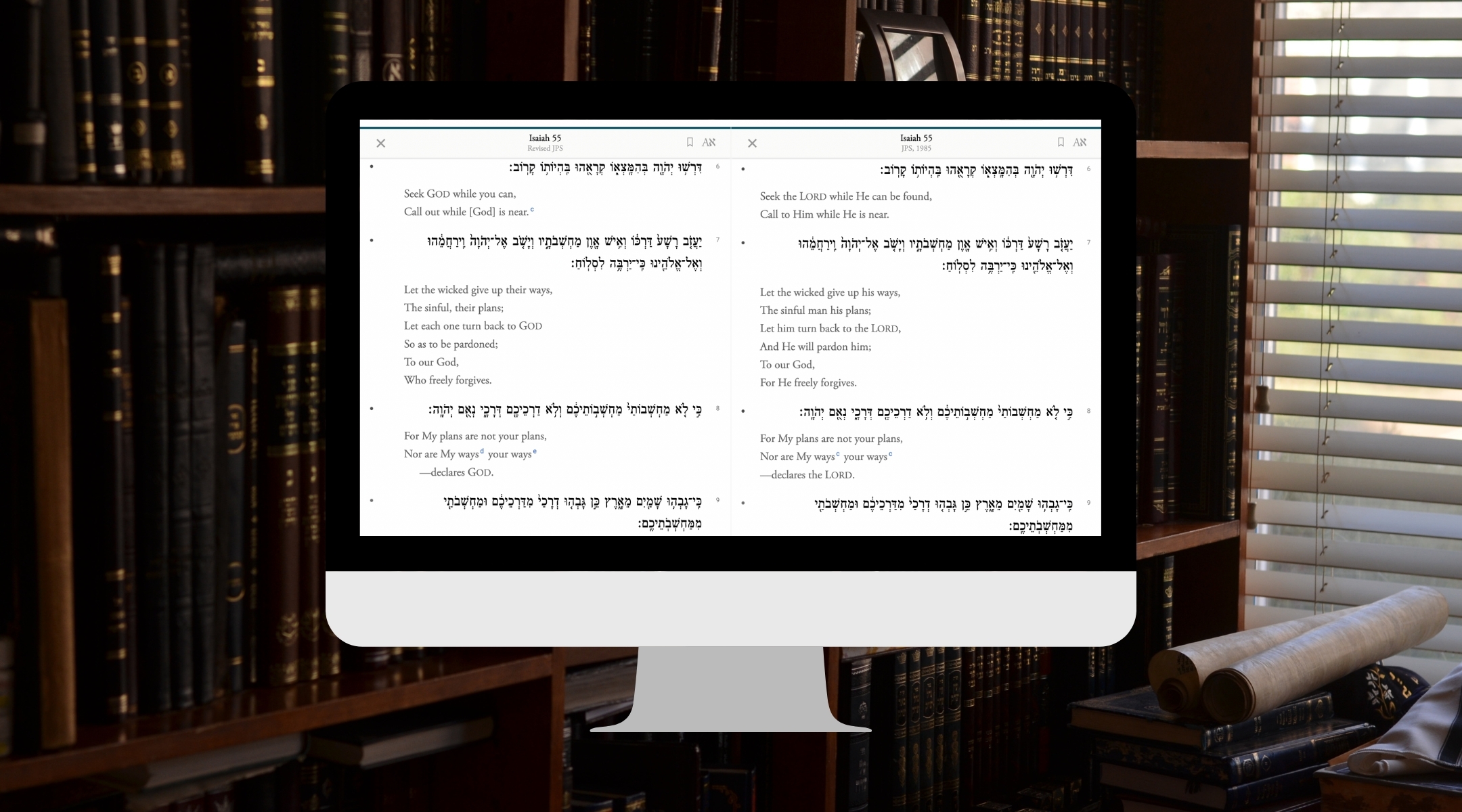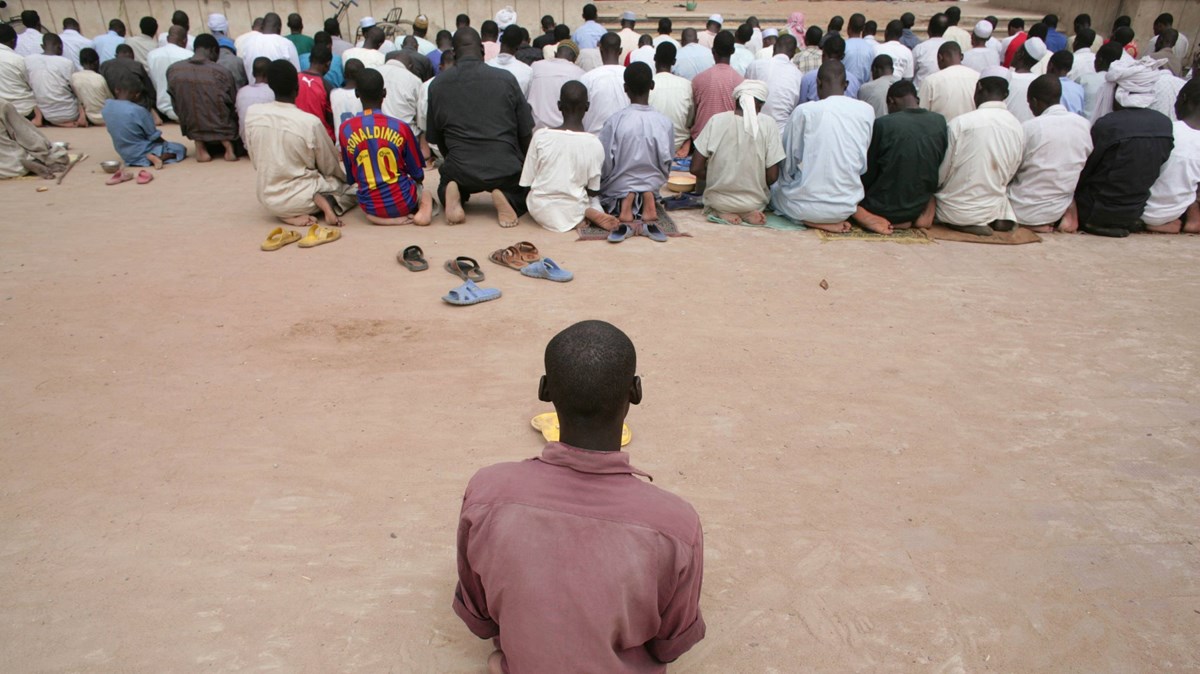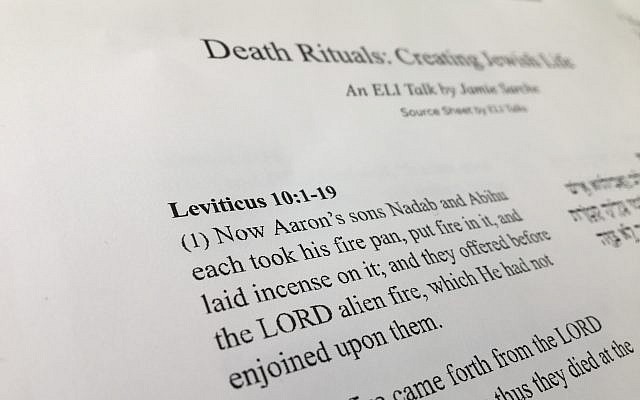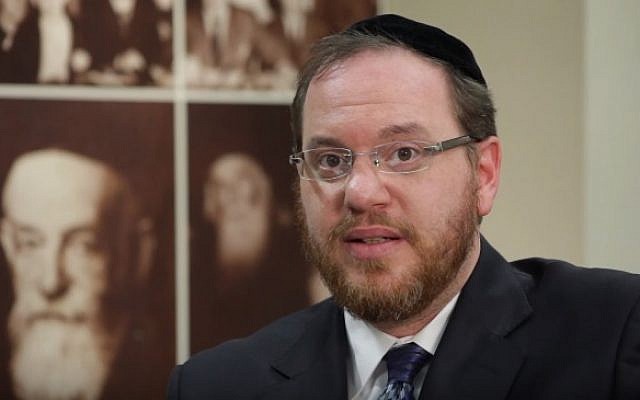
(JTA) — A new Bible translation that eschews gendered pronouns for God is now available through Sefaria, the online library of Jewish texts, prompting backlash on social media from some who see the change as a sacrilege.
The Revised Jewish Publication Society edition of the Bible, which the 135-year-old Jewish publishing house has released in partnership with Sefaria, is the first major update to the JPS translation of the Tanakh in nearly 40 years. So far, only the books comprising the Prophets, the Hebrew Bible’s second section, are available on Sefaria.
The new English translation refers to individuals with pronouns that are consistent with traditional gender norms. But unlike nearly all translations of the Bible throughout history, the new edition, known as RJPS, does not refer to God with masculine pronouns. It doesn’t use feminine pronouns either: Instead, God is referred to simply as “God” throughout the text.
For example, Isaiah 55:6 reads, “Seek GOD while you can, Call out while [God] is near.” JPS’ landmark 1985 translation, by contrast, reads, “Seek the LORD while He can be found, Call to Him while He is near.”
“The RJPS makes the case that the art of Bible translation is always a work in progress, and should take into account not only our deeper understanding today of biblical Hebrew but also the significant changes that have occurred in the use of English over the past decades,” said JPS’ director emeritus, Rabbi Barry Schwartz, in the announcement for the new translation of the Bible.
“Tanakh is the foundational text of the Jewish people, and we share Sefaria’s desire for everyone to be able to access it in language that is appropriate and meaningful for them while remaining faithful to the original,” Schwartz added. “Tanakh” is an acronym for the three components of the Hebrew Bible: the “five books of Moses,” Prophets and Writings.
The lack of divine pronouns in the RJPS translation comes as non-traditional pronouns — and debate over their use — have become increasingly prevalent in public discourse. A 2021 study by the Pew Research Center found that more than a quarter of American adults know someone who uses gender-neutral pronouns, up eight percentage points since 2018. Meanwhile, many conservatives have decried the use of gender-neutral pronouns, and multiple Republican-led states have passed laws effectively permitting educators to refuse to use the pronouns their students prefer.
The RJPS translation, one of at least 12 available through Sefaria, has sparked backlash online from some Orthodox Jews who believe the new translation is not aligned with their values. Arguing that the translation is an example of progressive political ideology seeping into religion, some have said they will stop using the app over the RJPS translation.
Yehiel Kalish, the CEO of Jewish ambulance corps Chevra Hatzalah, announced last week via Twitter that he had deleted the app. Other prominent figures in the Orthodox world also condemned the new translation.
“Sefaria is a tremendous resource for the [world of] Torah,” tweeted Yochonon Donn, news editor of Mishpacha Magazine, which reaches a haredi Orthodox audience. “Messing around with [holy books] to conform to western ideas of equality is an unacceptable breach. If this is true, I can’t see people learning from an unholy source.”
Rabbi Yaakov Menken, managing director of the Coalition for Jewish Values, a right-wing Orthodox political advocacy organization, tweeted that “to be more inclusive of atheists, they’ll provide a ‘historically accurate translation’ that avoids mention of the Supreme Being. ‘In the beginning, heaven and earth were created.’”
Sefaria has always featured texts relevant to Jews with a range of approaches — a spectrum that has only widened as the digital library has added (and begun supporting the creation of) contemporary texts and translations.
Publishing the RJPS is “about having different translations that are available,” said Sara Wolkenfeld, Sefaria’s chief learning officer. (Sefaria’s CEO, Daniel Septimus, is on the board of 70 Faces Media, the Jewish Telegraphic Agency’s parent organization.)
“We are always working to include Jewish texts that are studied by the full range of Jewish learners,” she said. “And that’s why we chose to include the newest JPS translation, but among the many other translations that we’ve already hosted in the library.”
Sefaria also has translations from Orthodox-geared publishing houses, such as the Koren and Metsudah versions, and even translations into French and German. Users can select their own preferred English translation, and RJPS is not the default translation for the Book of Prophets.
“People should know that Sefaria is a library for the entire Jewish people,” Wolkenfeld said. “And our mission is to provide access to Torah and to bring Torah into the digital age. That’s really what we’re aiming for.”




